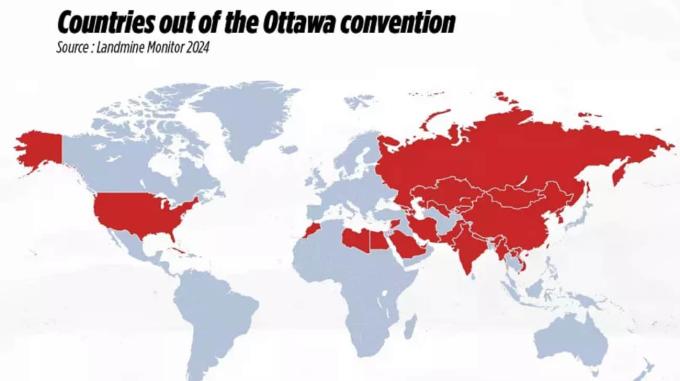Ukraine Announces Exit from Ottawa Convention: Security Considerations and the Right to Self-Defense

The Ministry of Foreign Affairs of Ukraine has officially explained the reasons behind its decision to withdraw from the international treaty known as the Ottawa Convention, which regulates the prohibition, stockpiling, and production of anti-personnel mines. This decision emerges as a logical response to the changing realities on the ground, especially amid Russia's unprovoked aggression against Ukraine. According to the official statement, Ukraine ratified the convention in 2005 and has since diligently adhered to its provisions. However, the situation has dramatically shifted since Russia—an non-party to the Ottawa Convention—launched a full-scale invasion in 2014 and continued military operations afterward. Despite international commitments, Russia has extensively employed anti-personnel mines as a tactic in its warfare, especially during the large-scale invasion starting in 2022. Ukrainian diplomats emphasize that the widespread use of such munitions grants an unfair and asymmetric advantage to the aggressor, significantly hampering Ukraine’s defensive capabilities and restricting its right to self-defense as enshrined in Article 51 of the UN Charter. Additionally, Russia's aggression prompted several NATO countries, including Latvia, Lithuania, Estonia, Poland, and Finland, to reconsider their stance and make collective decisions to leave the convention. In this context, Ukraine, faced with the immediate threats to its sovereignty, national security, and the safety of its citizens, has made a difficult but necessary decision to cease fulfilling obligations under the Ottawa Convention. This step is aimed at improving the country's defense posture and ensuring its capacity to respond to ongoing threats. On June 29, Ukrainian President Volodymyr Zelensky signed a decree officially withdrawing Ukraine from the treaty. This move underscores Kyiv's commitment to safeguarding its sovereignty, strengthening its defenses, and adapting international legal frameworks to better meet the demands of modern warfare amid the brutal Russian assault.

